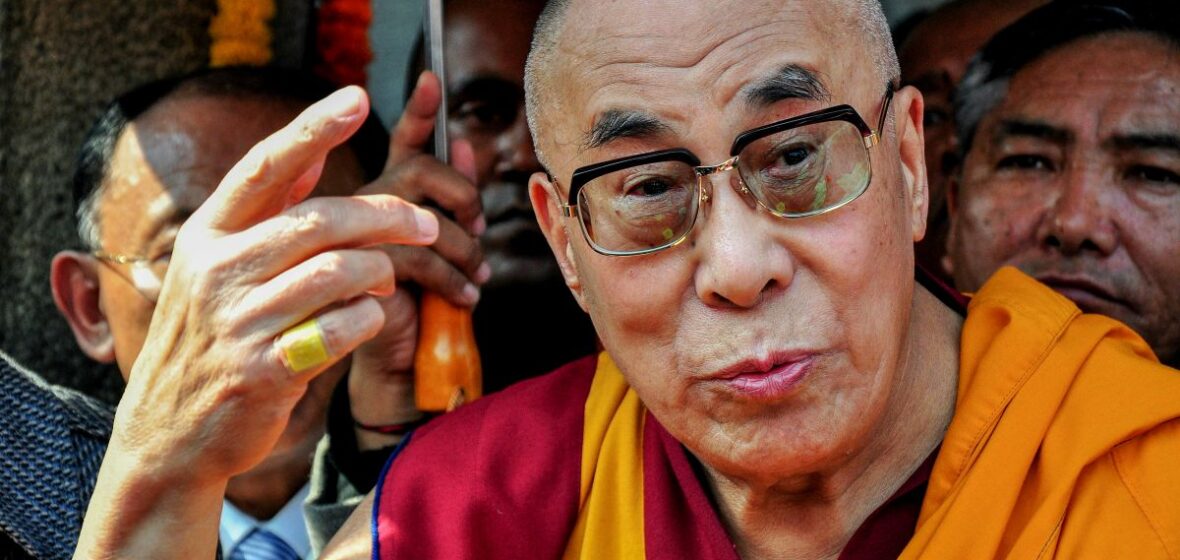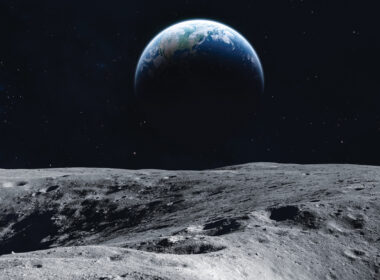The Tibetan Buddhist leader-in-exile, the Dalai Lama, recently told media he intended to live to 130 years of age. At his home in Dharamsala, the 14th Dalai Lama turned 90 on 6 July this year, which he had always intended would be the time to announce an heir.
China swiftly responded that its government has authority over the future Dalai Lama. A new report indicates a strategic plan by the Chinese Communist Party (CCP) to leverage the passing of the Dalai Lama to install their own candidate and further erode Tibetan’s religious beliefs and independence.
The Dalai Lama, whose full spiritual name is Jetsun Jamphel Ngawang Lobsang Yeshe Tenzin Gyatso (shortened as Tenzin Gyatso), is a Buddhist monk and the head of Tibetan Buddhism. Since 1960, he has also led the Tibetan government-in-exile in Dharamsala, India. Born in 1935, he was selected as the tulku in 1937, considered a reincarnation of a previous spiritual master (lama), and formally recognised as the 14th Dalai Lama in 1939. At that time, the Central Government of the Republic of China approved. However, in October 1950, the Battle of Chamdo resulted in the People’s Republic of China (PRC) staging a military campaign to claim the Chamdo Region that had, until then, been considered a de facto independent Tibetan state. Resultingly, Tibet was annexed, and Tibetan representatives were pressured to agree to China’s sovereignty over Tibet during “negotiations” in Beijing.
In March 1959, the Chinese military surrounded the Tibetan capital of Lhasa and, suspecting he would be detained by the PRC, the Dalai Lama donned a Chinese Army uniform and fled to Bomdila and Mussoorie in India, considered a politically neutral nation, before he established the Tibetan government-in-exile in Dharamsala in 1960.
Dr Zoë Bedford is the executive officer of the Australia Tibet Council. She explains, “China invaded Tibet in 1950 because Tibet has vast natural wealth. China’s word for Tibet is Xizang – this word Xizang literally translates to “Western Treasure House’. Beijing now has large-scale mining operations in lithium, chromium, silver, copper and gold across the Tibetan plateau. China is also is controlling much of the world’s water supply by controlling Tibet. The Yangtze River, the Yellow River, the Indus River, the Mekong River, the Ganges River, The Salween River and the Brahmaputra (Yarlung Tsangpo) river all originate in Tibet. So many of the world’s largest river systems flow from glaciers on the Tibetan plateau and are a critical resource for the densely populated nations surrounding it, the Chinese Government is damming these rivers at an alarming pace.”
The 15th Dalai Lama will be reincarnated in ‘a free country’
In the first week of July, the Dalai Lama shared a video with Tibetan monks and leaders that explained his succession plans, which the Chinese government has already challenged. He told viewers he would remain the Dalai Lama until his death, and that his trusted alliance of monks (via the Gaden Phodrang Foundation) would have the “sole authority” to identify the child bearing the reincarnated spirit of the Dalai Lama.
“No one else has any such authority to interfere in this matter,” he said. His birthday celebrations, notably, were recognised by three former US presidents – George W. Bush, Bill Clinton, and Barack Obama. Secretary of State Marco Rubio provided a message of “best wishes”, adding, “The United States remains firmly committed to promoting respect for the human rights and the fundamental freedoms of the Tibetan people. We respect efforts to preserve their distinct linguistic, cultural and religious heritage, including their ability to freely choose and venerate their religious leaders without interference.”
China viewed the Dalai Lama’s succession plan as a direct challenge, since China has enshrined its own right to decide upon the next Dalai Lama in law. In 2007, China mandated that all reincarnations of Tibetan “living Buddhas” must be approved by the state, following processes outlined by Chinese laws, religious, and historical precedent. This refers to the process of drawing lots from a golden urn and government approval over the selection. The Times of India reported that China’s ambassador to India, Xu Feihong, refuted the Dalai Lama’s authority over the Tibetan Buddhist reincarnation system and the future successor. The President of the Tibetan government-in-exile, Penpa Tsering, responded that China was engaged in a “cultural genocide.”
The Indian ministry of external affairs’ representative, Randhir Jaiswal, also responded: “We have seen reports relating to the statement made by His Holiness the Dalai Lama about the continuation of the Dalai Lama institution…Government of India does not take any position or speak on matters concerning beliefs and practices of faith and religion.”
Australia wary of trade and diplomatic disputes
Dr Bedford tells LSJ Online, “It is possible for countries to support the Dalai Lama. Often the Chinese Government will react to countries and sometimes, as we have seen here in Australia, they will ‘rebuke’ countries by either threatening trade deals or cancelling trade deals – but as we have also seen here in Australia, ultimately China needs trade with Australia and their other global trading partners and these reactions are temporary.”
Dr Bedford adds, “Australia is a mid-size country with allies, and we are also one of the few countries worldwide that has a trade surplus with China, instead of a trade deficit. Many smaller nations, especially those that are subject to China’s development loans or are part of the ‘belt and road initiative’ are less immune to China’s bullying.”
Kyinzom Dhongdue, Strategy and Advocacy Manager, Amnesty International Australia, wrote that the actions of China are not only cruel, but unlawful.
For Amnesty International online, he wrote: “China’s intention to appoint its own Dalai Lama – one who will be loyal to Beijing – is a direct assault on the very principle of religious freedom.”
Dhongue continued that the intention of the CCP “is a political power grab – and a blatant violation of international human rights law. The Dalai Lama’s reincarnation is a sacred matter for Tibetan Buddhists, rooted in centuries of tradition. It is not the domain of any government, least of all a regime that has spent decades systematically eroding Tibetan culture, language, and spiritual practice … China’s intention to appoint its own Dalai Lama – one who will be loyal to Beijing – is a direct assault on the very principle of religious freedom. It is also part of a broader strategy to eliminate Tibetan identity by colonising its spiritual core.”
Dr Bedford says that the US has expressed stronger support for Tibet than Australia, pointing to three major pieces of legislation that outline its support for Tibet: the Reciprocal Access to Tibet Act, the Tibet Policy and Support Act, and the Promoting a Resolution to the Tibet-China Conflict Act.
The latter is the most recent, signed by President Biden last year. Dr Bedford explains, “This one is designed to push [or] encourage China back to the negotiating table with the Dalai Lama and counter China’s misinformation about Tibet. All of these Acts have bipartisan support in both houses of Government. The USA also has a US Special Coordinator for Tibetan Issues, Uzra Zeya.”
A ‘disappeared’ Dalai Lama candidate a threat by the CCP
The Tibet Justice Centre released a recent report that investigated the potential impact of Chinese strategy to take advantage of the ageing Dalai Lama to crush international support for Tibet, based upon previously unseen Chinese policy documents. The CCP has reportedly strategised a media and public relations campaign targeting Western nations that aims to attract support for a China-selected Dalai Lama candidate. The Dalai Lama stated, “If I die as a refugee and the Tibetan situation remains like this, then logically, my reincarnation will appear in a free country.”
On May 14 1995, the 14th Dalai Lama recognised six-year-old Gedhun Choekyi Nyima as the 11th reincarnation of the Panchen Lama. Three days later, the child and his family disappeared, and Tibetans associated with searching for the family were arrested and sentenced. No sign of Gedhun Choekyi Nyima and his family ever emerged. Rather, China promoted its own selection of Gyaltsen Norbu as their own Dalai Lama candidate, despite the majority of Tibetans refusing to recognise this candidate. In 2019, Norbu was elected president of a regional branch of the Buddhist Association of China and has been photographed taking tours of monasteries and infrastructure in Lhasa and in areas close to the Indian border.
The UN Committee on the Rights of the Child, the UN Working Group on Enforced or Involuntary Disappearances, and multiple UN Special Rapporteurs have repeatedly called on China to account for his fate.
Donghue says, “The Australian Government must publicly affirm that Tibetan Buddhists have the right to determine their own religious leadership and call for independent access to Gedhun Choekyi Nyima, who remains one of the world’s longest-serving disappeared persons.”
Dr Bedford says, “The USA, Canada and European Union have issued some Magnitsky Sanctions on Chinese officials for their human rights abuses in Tibet, along with some Visa bans. Australia is yet to issue Magnitsky sanctions on any CCP officials for any human rights violations.”




